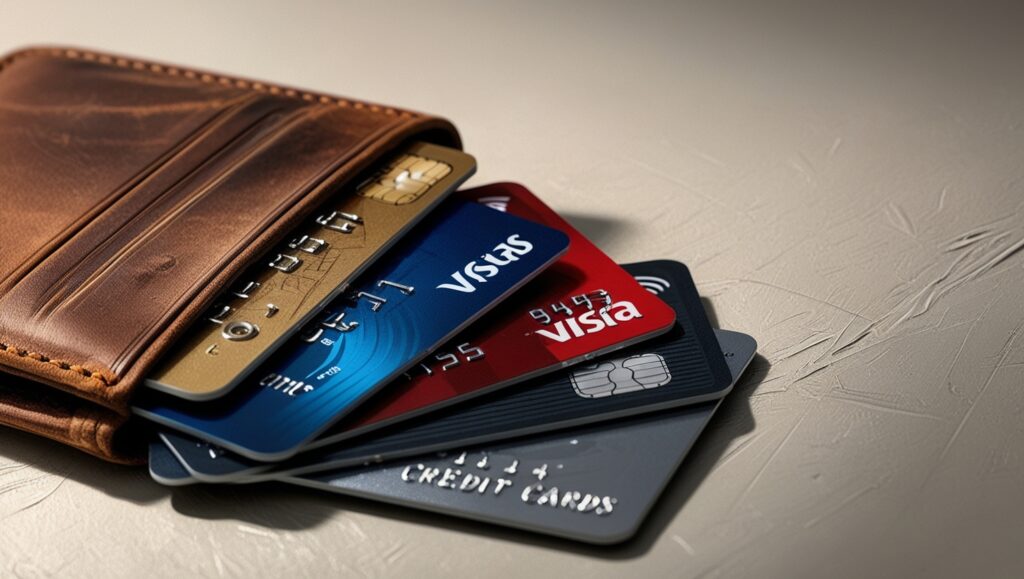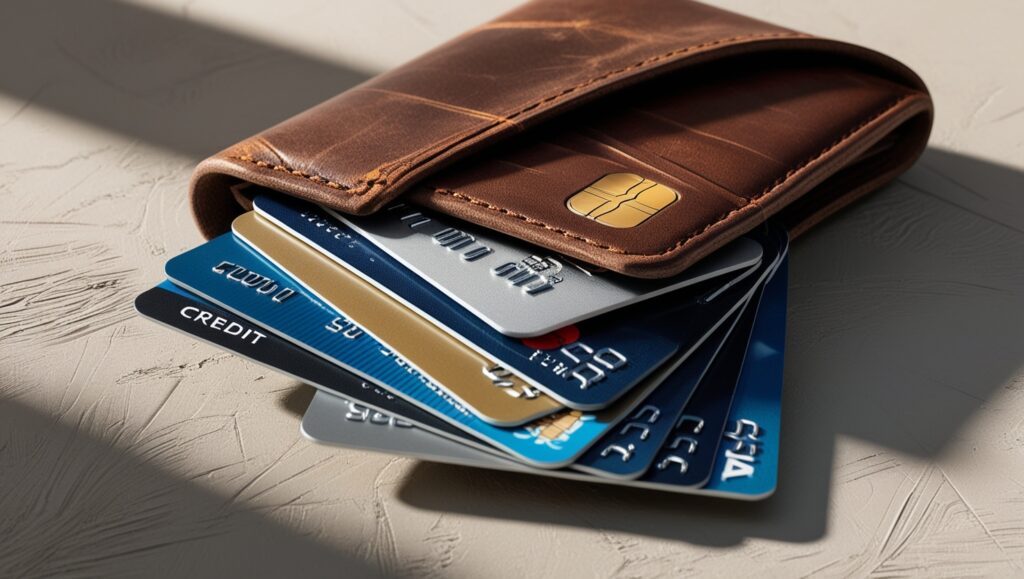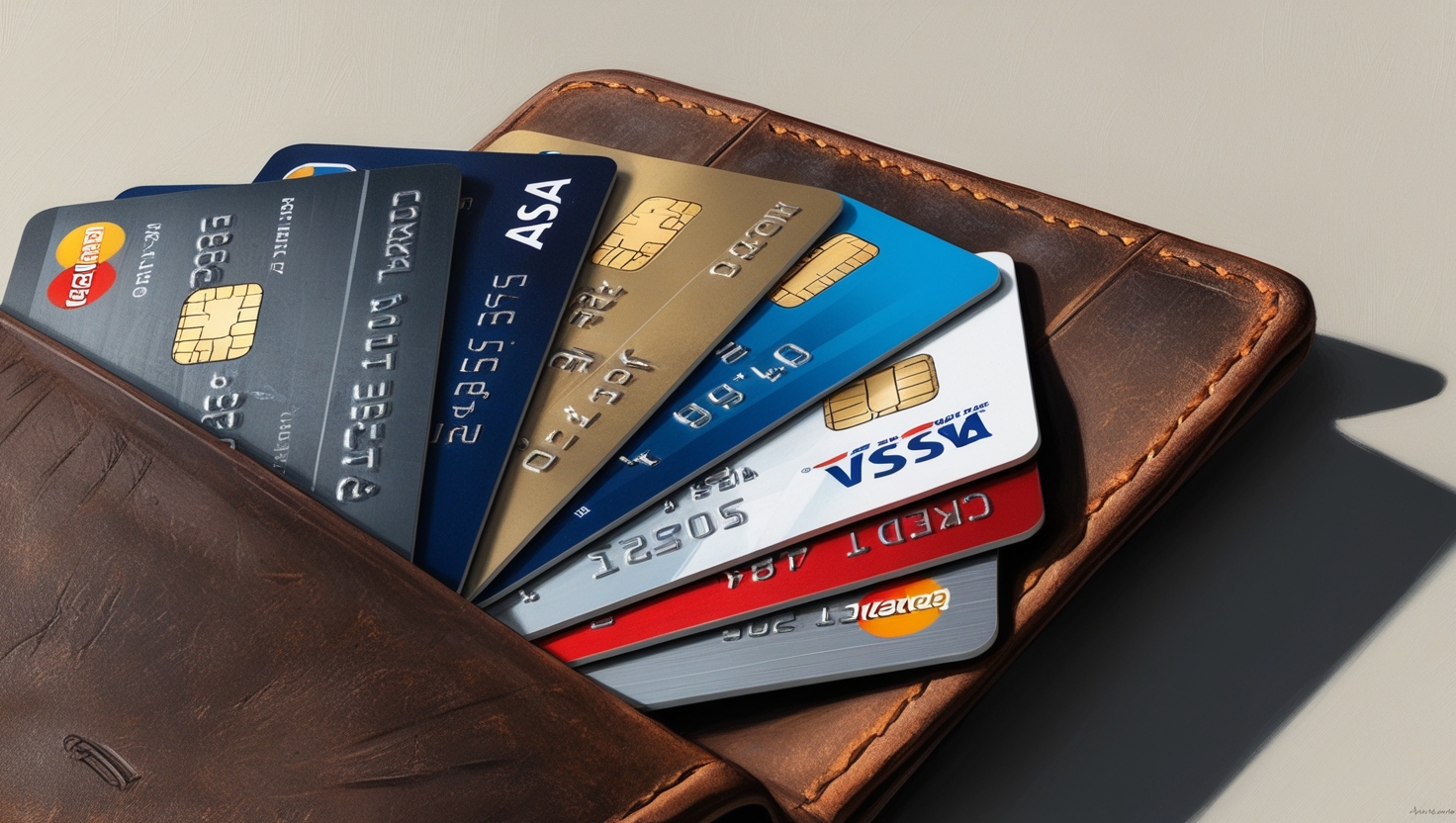Having a credit card is a great thing indeed, although most are hard to obtain for those who have a less than perfect credit history. The restrictions for getting most credit cards are so tough that those who have bad credit may find it nearly impossible to get a credit card, or they find themselves hit with extremely high APR rates, and find it hard to compete with the interest.
For those who have less than perfect credit or no bank account, there is hope. There are credit cards known as no bank account cards, that can help those with bad credit. These types of credit cards are quite easy to obtain, and they can actually help you to get your credit back and track and live the life you’ve always dreamed of.
Credit cards of this type are pre-loaded, meaning that the credit limit you have it what you load onto the card, by pre payment. If you want to control your spending and know how much you have, this credit card is what you need. They are also great for those who want to learn about managing money as well. Another great thing about these cards is the fact that they will give you power and convenience of a credit card – yet they will allow you to live within the means of your income as well.
Before you rush and get one of these credit cards, you should first look around and find the best deal possible. Most no bank account credit cards offer you same rewards and incentives of traditional credit cards, along with online access to your account. The best cards are accepted across the world, and offer you ATM access for instant cash. If a card doesn’t offer you these types of features, you should pass it by and look for one that does.
Other things to look for with no bank account credit cards include low APR rates, no annual fees, and excellent customer support. Customer support is very important with these types of credit cards, as you don’t want a card that doesn’t offer you great customer support. If you encounter a problem, you want a company that is going to be there when it matters the most.
If you take your time and research no bank account credit cards, you’ll find one that you can’t refuse. There are many to choose from, especially if you look online. You should always compare features and rates, and look for companies that offer you cards with excellent features and low rates. This way, you can get everything you love from traditional credit cards – without having to worry about your credit or needing to have a bank account.

Process to get Credit Cards Without A Bank Account
Getting a credit card without a traditional bank account can be a bit different from the usual process, but it’s definitely possible. Here’s a step-by-step guide to help you through the process:
1. Research Your Options
- Identify Card Types: Look into prepaid debit cards, secured credit cards, retail store cards, or alternative fintech options.
- Read Reviews: Check user reviews and official card terms to understand the fees, interest rates, and requirements.
2. Choose the Right Card
- Prepaid Debit Cards: No credit check required, but you’re using your own money. This is not a credit card but acts like one.
- Secured Credit Cards: You’ll need to provide a cash deposit as collateral. Ensure the card issuer doesn’t require a bank account.
- Retail Store Cards: These might be easier to get approved for and don’t always require a bank account.
- Fintech Solutions: Companies like Chime offer credit-builder cards that don’t require a traditional bank account.
3. Prepare the Necessary Documents
- Identification: Have a valid government-issued ID ready.
- Proof of Income: Some cards may require proof of income, such as pay stubs or a letter from your employer.
- Address Verification: A utility bill or lease agreement can serve as proof of address.
4. Application Process
- Online Application: Most cards allow you to apply online. Be ready to provide personal details like your SSN, income, and address.
- Deposit Requirement (for Secured Cards): If applying for a secured card, you’ll need to provide the cash deposit. Some cards allow you to do this via money orders or alternative methods if you don’t have a bank account.
- Approval Time: Approval can be instant, but sometimes it might take a few days. Prepaid cards are usually available immediately upon purchase.
5. Receive and Activate Your Card
- Delivery: Your card will be mailed to you. If it’s a prepaid card purchased in-store, you can use it right away after activation.
- Activation: Follow the instructions provided to activate your card. This is usually done by phone or online.
6. Using the Card
- Making Purchases: Use the card like any regular credit card or debit card for purchases.
- Manage Payments: For secured cards or retail cards, ensure you pay off your balance on time to avoid high interest rates and build your credit score.
- Reloading (Prepaid Cards): If using a prepaid card, remember to reload funds as needed.
7. Monitor Your Credit (if applicable)
- Credit Reporting: If using a secured or alternative credit-building card, check if the issuer reports to credit bureaus. Monitor your credit score regularly to track your progress.
8. Consider Upgrading Later
- Build Credit: Once you’ve established a good credit history, you may become eligible for unsecured credit cards that offer better rewards and terms, even without a bank account.
Important Tips
- Avoid Scams: Be wary of offers that sound too good to be true. Stick to reputable issuers.
- Understand Fees: Non-traditional cards may come with higher fees; make sure you’re aware of them.
- Read the Fine Print: Always read the card’s terms and conditions to understand what you’re signing up for.

Pros and Cons of getting Credit Card without a Bank Account
Getting a credit card without a bank account can be advantageous in certain situations but also comes with potential drawbacks. Here’s a breakdown of the pros and cons:
Pros
1. Accessibility
- No Bank Account Required: These options are ideal for individuals who do not have or do not want to use a traditional bank account. This can be particularly useful for those who are unbanked or underbanked.
- Credit Building: Secured credit cards and some alternative credit options allow you to build or improve your credit score without needing a bank account, which can help you qualify for better financial products in the future.
2. Ease of Approval
- Less Stringent Requirements: Prepaid and secured cards often have lower eligibility requirements compared to unsecured credit cards, making it easier for those with poor credit or no credit history to get approved.
3. Spending Control
- Prepaid Cards: These cards help you avoid debt since you can only spend the money you’ve loaded onto the card. This is helpful for budgeting and avoiding overspending.
4. No Overdraft Fees
- Prepaid Cards: Unlike debit cards linked to a bank account, prepaid cards don’t have overdraft fees because you can’t spend more than what’s loaded on the card.
Cons
1. Limited Features
- Fewer Rewards and Benefits: Many prepaid and secured credit cards offer limited rewards, benefits, and protections compared to traditional credit cards.
- Restricted Use: Some cards, especially retail store cards, can only be used at specific retailers or within certain networks, limiting their flexibility.
2. Higher Fees
- Maintenance and Transaction Fees: Many prepaid and secured cards come with various fees, such as monthly maintenance fees, ATM withdrawal fees, reload fees, and even fees for checking your balance.
- High Interest Rates: Secured credit cards may have higher interest rates than standard credit cards, especially if you carry a balance.
3. Deposit Requirement
- Secured Cards: These require an upfront cash deposit, which acts as your credit limit. This can be a barrier if you don’t have extra cash available.
4. Potential for Debt
- High-Interest Rates: If you’re using a secured credit card and don’t pay off your balance in full each month, interest can accumulate quickly, potentially leading to debt.
- Limited Credit Limits: The credit limit on secured cards is usually tied to your deposit, which might be lower than the credit limits offered by unsecured cards.
5. Limited Credit Reporting
- Not All Cards Report to Credit Bureaus: Some prepaid cards don’t help build credit since they don’t report to credit bureaus. Ensure that any credit-building card you choose reports to the major credit bureaus.

Conclusion
Getting a credit card without a bank account can be a good solution if you’re looking to build credit or need access to credit without the traditional banking system. However, it’s important to be aware of the potential downsides, such as higher fees and limited features. If you’re considering this option, weigh the pros and cons carefully and choose a card that best fits your financial needs and goals.
